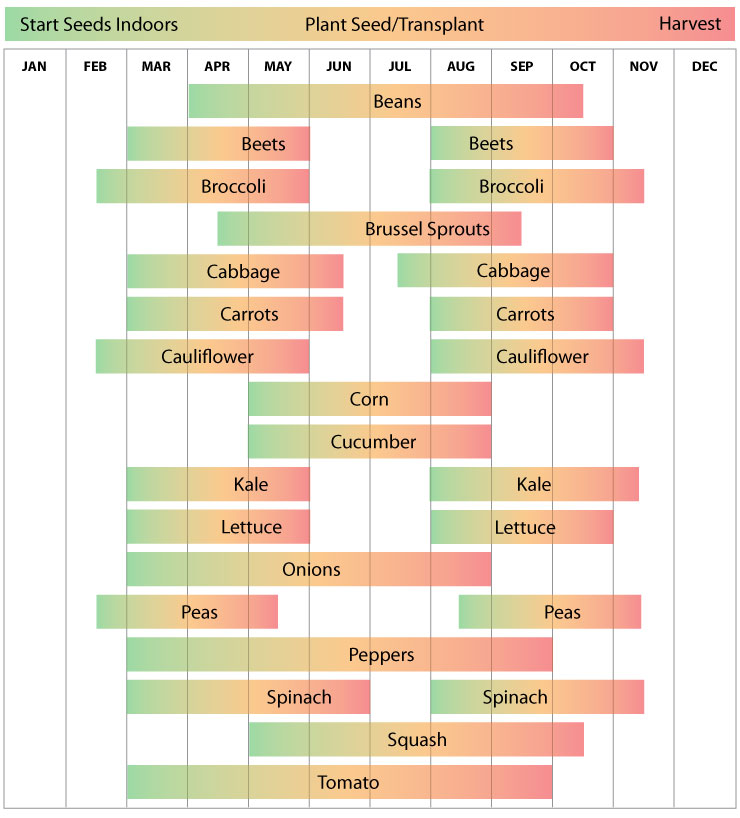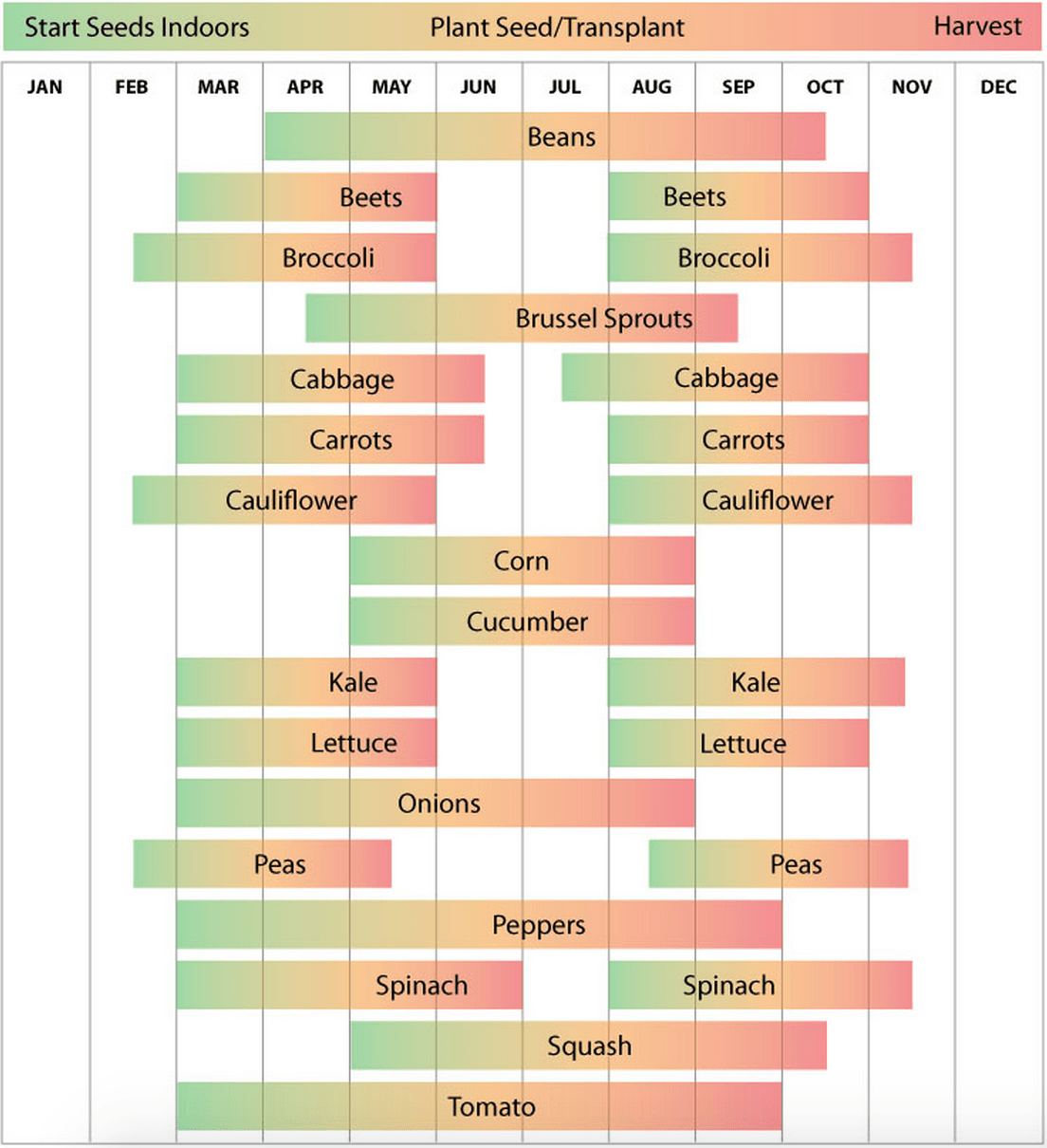Unlocking the Bounty: Your Guide to Fall Vegetables in Tennessee
Imagine crisp, homegrown salads, hearty soups, and vibrant roasted vegetables gracing your table throughout the fall. This dream can become a reality with a little planning and the right knowledge about what autumn vegetables thrive in Tennessee's climate. This comprehensive guide will equip you with the tools and insights you need to cultivate a successful fall vegetable garden, transforming your backyard into a cornucopia of delicious, nutritious produce.
Tennessee's mild autumn weather provides an ideal environment for extending the growing season. By selecting the right vegetables and employing appropriate gardening techniques, you can enjoy fresh produce well into the cooler months. Understanding the specific needs of each vegetable, from soil preparation to pest control, is crucial for maximizing your harvest. This guide will delve into the nuances of fall gardening in Tennessee, empowering you to make informed decisions and enjoy the fruits (and vegetables!) of your labor.
Planting vegetables in Tennessee during the fall offers several distinct advantages. Cooler temperatures are often more agreeable for gardening, and the reduced pest pressure can simplify maintenance. Furthermore, fall harvests provide a unique opportunity to savor the flavors of the season, enriching your meals with fresh, locally grown produce. This guide will explore these benefits in detail and offer practical advice on how to leverage them for a successful autumn garden.
Historically, Tennesseans have relied on fall gardens to supplement their winter food stores. From preserving tomatoes and canning green beans to storing root vegetables in cellars, the tradition of fall gardening is deeply rooted in the state's agricultural heritage. This guide will draw on this rich history, offering time-tested techniques alongside modern best practices for cultivating a thriving fall vegetable garden.
One of the most exciting aspects of fall gardening in Tennessee is the sheer variety of vegetables that can be grown. From leafy greens like spinach and lettuce to root crops like carrots and beets, the options are abundant. This guide will explore the best fall vegetables for Tennessee gardens, providing detailed information about each vegetable's planting requirements, growth habits, and ideal harvest time.
Common fall vegetables suitable for Tennessee include broccoli, cabbage, cauliflower, kale, spinach, lettuce, carrots, beets, radishes, turnips, and mustards. These cool-season crops thrive in the milder temperatures of autumn.
Benefits of fall gardening in Tennessee include extended growing seasons, reduced pest pressure, and the joy of fresh, locally grown produce during the cooler months.
Action Plan: 1. Soil Preparation: Amend your garden beds with compost or other organic matter. 2. Seed Selection: Choose varieties suitable for fall planting. 3. Planting: Follow recommended planting dates and spacing. 4. Watering: Provide consistent moisture, especially during dry spells. 5. Pest Control: Monitor for pests and take appropriate action.
Advantages and Disadvantages of Fall Gardening
| Advantages | Disadvantages |
|---|---|
| Extended growing season | Potential for early frost |
| Reduced pest pressure | Shorter daylight hours |
| Cooler temperatures for gardening | Some vegetables require specific temperature ranges |
FAQ:
1. When should I plant fall vegetables in Tennessee? Generally, late summer to early fall.
2. What are the best fall vegetables for Tennessee? Broccoli, kale, spinach, lettuce, carrots, and beets are good choices.
3. How do I protect my fall vegetables from frost? Use row covers or cold frames.
4. How often should I water my fall garden? Water deeply and consistently, especially during dry periods.
5. What are common pests in a fall garden? Aphids, slugs, and snails can be problematic.
6. How do I amend my soil for fall planting? Add compost or other organic matter.
7. When should I harvest my fall vegetables? Follow recommended harvest times for each vegetable.
8. Where can I find more information about fall gardening in Tennessee? Consult the University of Tennessee Extension website.Tips and Tricks:
* Plant successive crops for a continuous harvest.
* Use mulch to retain moisture and suppress weeds.
* Consider raised beds for improved drainage and soil warming.
* Rotate crops to prevent soil depletion and disease.Embracing the potential of fall gardening in Tennessee opens up a world of culinary possibilities. From the satisfaction of harvesting your own fresh produce to the vibrant flavors that grace your table, the rewards are plentiful. By following the guidance provided in this comprehensive guide, you can cultivate a thriving autumn garden and savor the bounty of the season. Start planning your fall garden today, and experience the joy of homegrown vegetables well into the cooler months. Remember, a successful fall garden is not just about what you plant, but also how you nurture and care for your plants throughout the season. Take the time to learn about the specific needs of each vegetable, and don't be afraid to experiment and adapt your techniques. With a little effort and dedication, you can unlock the true potential of your fall garden and enjoy the fruits of your labor for months to come. Don’t wait, start your fall gardening journey now!
The quiet impact of forearm tattoos for men small
Understanding fee for service medicare
Adding humor to the hustle the power of funny teams backgrounds













